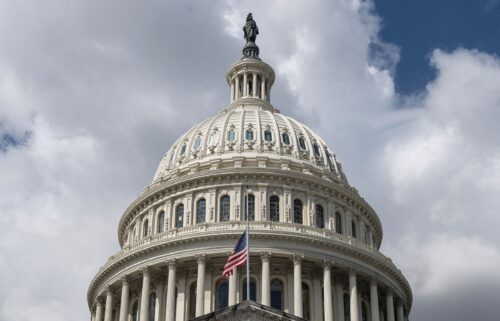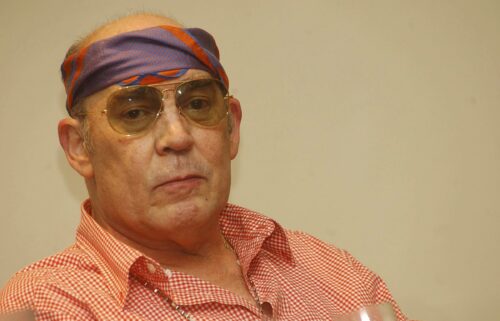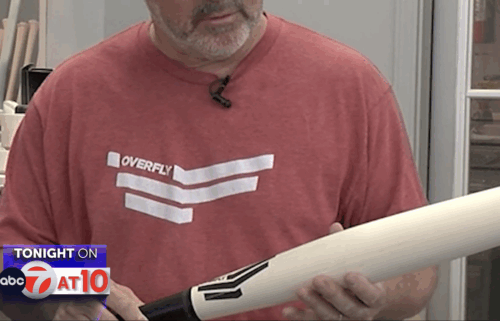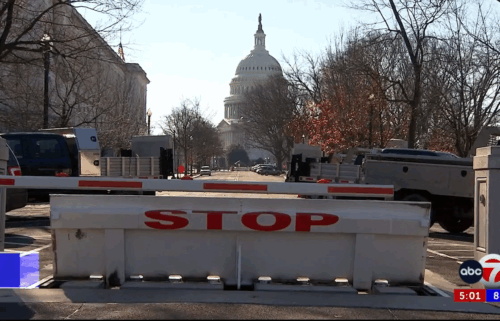Detroit settlement marks progress in a yearslong fight for cash bail reform
By Nicquel Terry Ellis, CNN
When Starmanie Jackson was arrested after a traffic stop and for a 3-year-old warrant alleging felony assault in April 2019, she was stuck in jail for a week because she couldn’t afford $700 for bail.
Being incarcerated caused Jackson to lose her new job as a certified nursing assistant at a metro Detroit nursing home, and she was evicted from her apartment because she could not pay the rent. Jackson was also separated from her two children, who were 2 and 4 at the time, she said.
The experience, Jackson said, was both confusing and hurtful.
“I felt like the system failed me as a person,” Jackson said. “I felt alone and by myself in this situation.”
A settlement reached by civil rights advocates and a district court in Detroit has brought relief for people like Jackson who are unable to pay cash bail.
Jackson was among seven Black Detroit residents named as plaintiffs in a lawsuit filed in April 2019 by the ACLU of Michigan, The Bail Project, NAACP Legal Defense and Educational Fund, and the Covington & Burling LLP law firm. The groups sued the chief judge and magistrates of Michigan’s 36th District Court and the Wayne County sheriff on behalf of the plaintiffs who were all in jail and couldn’t afford bail at the time.
The settlement includes an agreement that the court will release people without cash bail unless there is evidence they are a flight risk or danger to the public; a requirement for the court to set bail after determining how much a defendant can afford to pay; and an assumption that anyone with a household income that is 200% or less of the federal poverty level — $55,000 for a family of four — can’t afford to pay cash bail.
Cash bail is used as a guarantee that a defendant will return for a trial or hearings. A standard bail amount is set for any alleged offense, but judges have discretion to raise or lower it — and in some cases the judge can waive bail and release a defendant on their “own recognizance,” according to the Brennan Center.
Bail reform aims to curb or eliminate cash bail for people who are in jail awaiting trial if they are charged with misdemeanors or nonviolent offenses. The purpose is to make the system more equitable for those who cannot afford to pay their bonds.
Cash bail reform advocates say the Detroit settlement was not only a historic win but marks progress in their fight to change cash bail practices across the country that they say disproportionately impact poor people of color. Advocates say cash bail only fuels structural racism in the criminal justice system because Black and Hispanic people are jailed at higher rates and more likely than their White counterparts to be unable to pay bail. Now cash bail reform supporters are hoping Detroit can be an example for other courts that impose unaffordable bail on poor people.
Phil Mayor, a staff attorney for the ACLU of Michigan, said Michigan’s 36th District Court is the first in the nation to collaborate and settle a lawsuit with civil rights advocates on significant cash bail reform.
Mayor said poor people risk losing their jobs, housing, and custody of their children when they can’t bail themselves out of jail.
“It is an endemic problem throughout the United States … that cash bail is being used to discriminate against the poor by incarcerating people not because they have done anything wrong but because they are too poor to purchase their freedom,” Mayor said.
During a news conference when the settlement was announced, Judge William McConico, chief judge of the 36th District Court, said the “agreement preserves judicial discretion, while ensuring that judges are exercising that discretion lawfully and wisely.
It is possible to develop policies and practices to reduce unnecessary incarceration associated with cash bail, while still protecting the public,” he said.
The ACLU has filed seven other lawsuits against sheriffs and judges that challenge money bail systems in Canadian County, Oklahoma; Dallas; Galveston, Texas; Alamance County, North Carolina; Lancaster County, Pennsylvania; Cullman County, Alabama; and Randolph County, Alabama.
ACLU staff attorney Andrea Woods said the organization believes it is unconstitutional to incarcerate people because they are poor and can’t make bail.
Still, the ACLU faces pushback from elected officials who don’t agree, Woods said.
“A lot of folks presiding over these systems can’t understand or can’t imagine a system that would work more fairly and better, so there is a lot of resistance,” she said.
‘Ransom for freedom’
As the number of homicides continue to rise in major American cities, some police leaders are targeting bail reform efforts as a contributing factor to the surge in violent crime rates — but data from a Chicago study shows that only a small percentage of defendants released on bail are committing violent crimes.
Poor people of color are disproportionately impacted by being unable to afford bail, according to a recent report from the US Commission on Civil Rights. More than 60% of those unable to pay bail bonds fall within the poorest third of society and 80% land within the bottom half, according to a 2016 report from the Prison Policy Initiative.
As advocates continue their legal battles against cash bail, some states have passed legislation in recent years.
Last year, Illinois Gov. J.B. Pritzker signed the Safety, Accountability, Fairness and Equity-Today, or SAFE-T, Act, which abolishes cash bail and takes effect in January 2023.
In 2017, New Jersey largely eliminated cash bail with hopes that it would reduce the number of people sitting behind bars because they couldn’t afford bail. Studies show the change led to a decline in jail populations and fewer arrests for low-level crimes.
Cook County Public Defender Sharone R. Mitchell Jr. was a staunch advocate for cash bail reform in Illinois and said the law was a major shift for criminal justice in the state. Mitchell said cash bail is a “broken model” because the vast majority of people in the state’s legal system are poor.
Cash bail has also contributed to an increase in the jail population due to a growing number of people who don’t have the money to get out, Mitchell said. People of color are overrepresented in the nation’s jail and prison population, data shows.
“Using money as that deciding factor just doesn’t make a lot of sense given the construction of who finds themselves in the system,” said Mitchell.
Twyla Carter, national legal and policy director for The Bail Project, said cash bail is “devastating” for Black and brown communities and families. People of color, Carter said, are more likely to live in poverty, work low-paying jobs, and come in contact with the criminal justice system. This makes bail an even greater hardship, she said. Bail also does nothing to keep communities safe, Carter said.
“If you have enough money you can be as dangerous as you want; you’re going to get out of jail pre-trial,” Carter said. “And someone could either throw a rock through a window or sleep in the park, and they get a dollar amount that they can’t afford, (then) they stay in jail. It has turned into ransom for freedom.”
The-CNN-Wire
™ & © 2022 Cable News Network, Inc., a WarnerMedia Company. All rights reserved.




